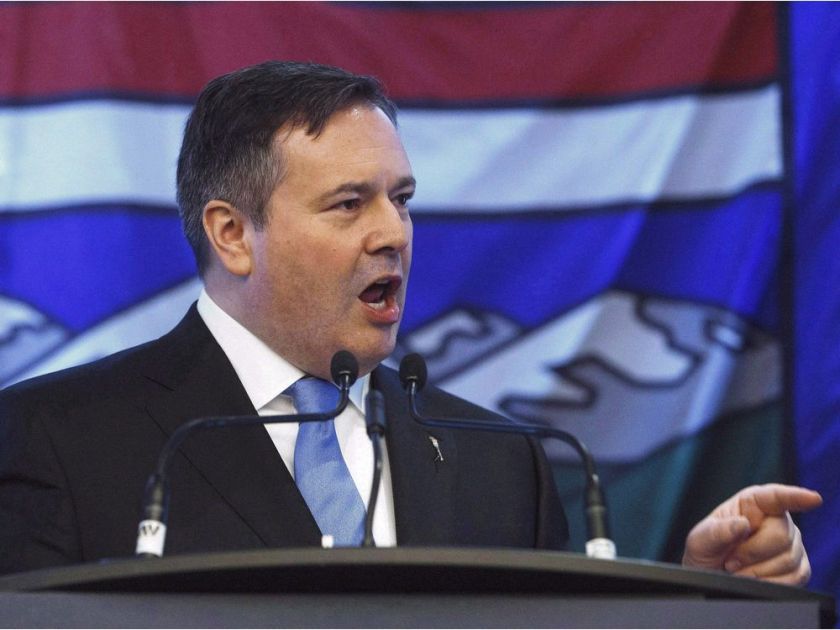Jason Kenney and the UCP have committed to hold a referendum to abolish or revise the federal equalization program. On Wednesday, Professors Oliver Franke and Elizabeth Smythe wrote an op-ed for the Edmonton Journal that characterized Kenney’s referendum promise as a cheap political trick “to mobilize the party’s base, misinform Albertans and stoke their hostility towards the federal government.”
While technically correct in some of their assertions, Franke and Smythe completely miss the two most important dimensions of federal equalization/transfer programs: the staggering dollar amount that Ottawa takes out of Alberta each year and how a referendum could be used to end this completely unfair policy.
The problem can be summarized as follows:
- $611 billion net transfers out of Alberta since 1961;
- $476 billion net transfers to Quebec since 1961;
- Quebec says “No” to Energy East pipeline;
- Ottawa says “Yes” to Quebec’s pipeline veto;
- Ottawa rewards Quebec with a $1.2-billion increase in equalization payments;
- Alberta, with a budget deficit of $9 billion, is still paying into equalization;
- Quebec, with a budget surplus, is still receiving equalization payments.
Equalization is only a portion of approximately $20 billion of net federal transfers out of Alberta each year. The Canada Health Transfer and Canada Social Transfer also have a transfer effect. The same is true for federal benefit programs such as employment insurance, old age security and the Canada Pension Plan. Collectively, we pay in way more than we get back.
Suffice it to say that if Quebec were treated the way Alberta is treated, they would have separated long ago; and secondly, if Albertans had the opportunity to re-negotiate the terms of our relationship with Canada, we would never consent to this status quo.
The good news is that with the right leadership, there are two ways that Albertans can challenge this completely unfair and dysfunctional status quo.
The first is to hold a provincial constitutional referendum in Alberta to remove the equalization program from the Constitution.
In its 1998 Quebec Secession Reference, the Supreme Court stated that in a provincial referendum on a proposed amendment to the Constitution, if the voting results in “a clear majority … on clear question,” the federal government has “a constitutional duty to negotiate” the issue. While this rule was laid down in the context of the 1995 Quebec referendum to secede from the rest of Canada, the court went out of its way to phrase its ruling in terms that apply equally to a referendum in any province.
The second option is to seek a judicial opinion on the constitutional validity of the inclusion of mineral royalties in the current equalization formula. Both Ottawa and the provinces have the legal right to refer questions of constitutional law to their respective courts of appeal, and ultimately the Supreme Court of Canada, for a judicial ruling. This was a tactic used successfully by Alberta premier Peter Lougheed against the national energy program in 1980.
The federal government’s current equalization formula is vulnerable to the same kind of constitutional challenge. The Supreme Court has ruled that taxes and royalties are categorically distinct. Royalties represent the one-off sale of a Crown asset — oil and gas — and are not part of a province’s so-called fiscal capacity.
In its earlier versions, the federal equalization formula did not include provincial Crown royalties. Only in the 1960s — as Alberta’s oil and gas industry became fiscally significant — did Ottawa begin to include revenues from provincial mineral royalties. The political angle was obvious: a bigger equalization “pie” meant a bigger slice for Quebec. But are Hydro Quebec’s revenues included in the equalization formula? Of course not! That would increase Quebec’s “fiscal capacity” and thus shrink Quebec’s share of transfers.
The equalization/transfer mess has been getting worse for decades. Now, it is compounded by Justin Trudeau’s attempts to appease climate-change voters in B.C. and Quebec. His refusal to prioritize new export pipelines to the west and east coasts has plunged Alberta’s economy into a recession not seen since the 1980s. A referendum would give Albertans an opportunity to send a message to Ottawa and Quebec: No pipelines means no equalization.
Alberta has never got anything from Ottawa without fighting for it. Lougheed understood this in 1980. Kenney understands this in 2019. Once again, we need a premier who is willing to challenge the status quo and demand a fair deal for Albertans.
Ted Morton is an executive fellow at the School of Public Policy and a professor emeritus at the University of Calgary. He was the MLA for Foothills-Rocky View from 2004-2012, and also served as minister of finance and minister of energy.






























